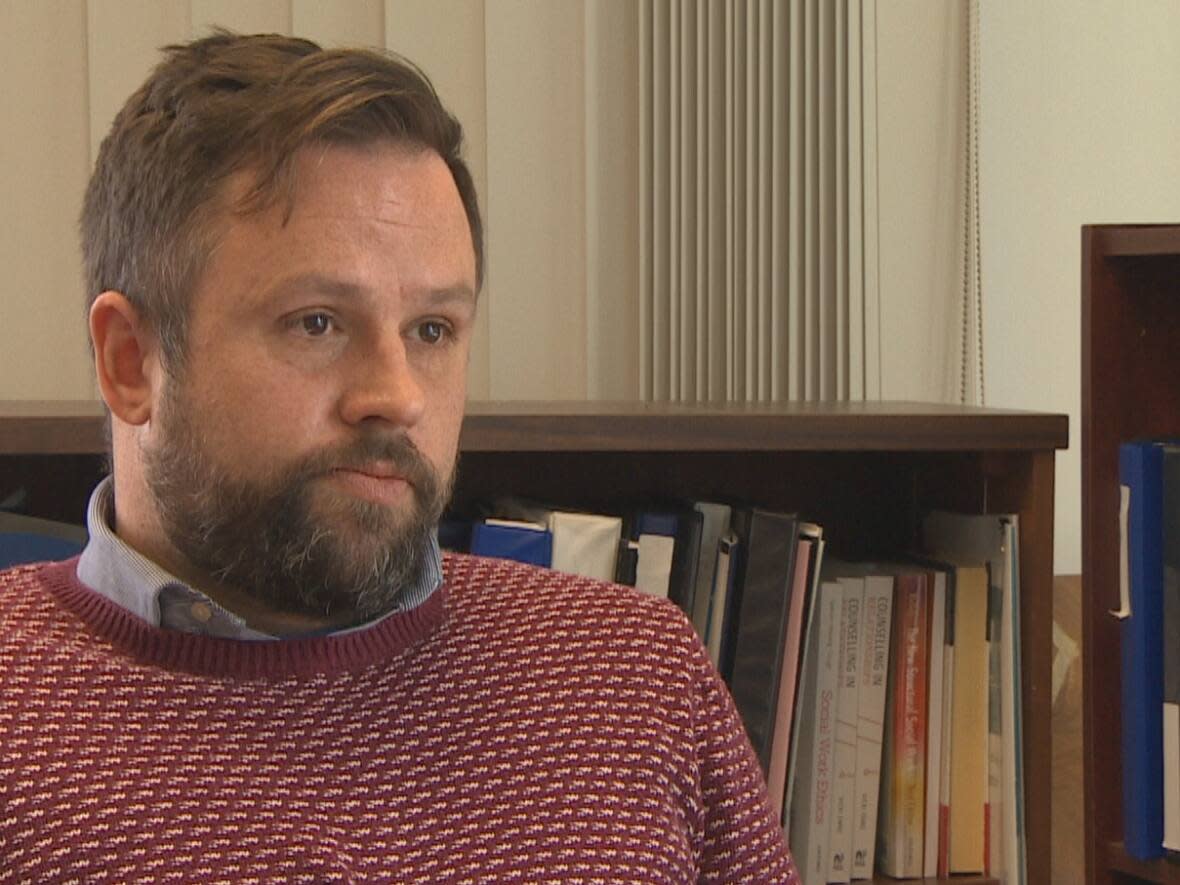Shortage of child welfare staff keeps some parents and children separated

A shortage of child welfare staff is keeping some parents who've lost custody of their children from seeing them during supervised visits, says the executive director of the Nova Scotia College of Social Workers.
Alec Stratford said the college has received reports that some visits haven't taken place since before Christmas. These visits typically happen twice a week, although it can vary depending on the family's situation, he said.
The problem is a lack of access and transportation workers who supervise visits, but it's not the only issue creating a "crisis" within child and family services, Stratford said.
"Parents have rights to their kids, and kids have rights to their parents, and so when that is impacted, it harms reunification," he told CBC Radio's Information Morning Nova Scotia on Thursday.
Stratford said there are also fewer social workers who want to work in a field that is seen by many as overly punitive.
Listen to Alec Stratford's full interview here:
"That is really at the root of this crisis where we are at this point in time," he said. "Child welfare is not seen as a desirable place to work given the breadth of social work jobs that there are in the province."
He traces the problem back to 2017 when the provincial government of the time changed the Children and Family Services Act to broaden the definition of a child in need of protective services.
At the time, some worried it would make it easier for child services to remove children from their families, but the government insisted it would do the opposite.
That didn't happen, according to Stratford.
"The logic behind it was that we could be more preventative if we were intervening earlier. The problem is that's not really how prevention works," he said.
The social determinants of health
He wants to see the province focus more on the reasons why children are removed from their homes in the first place, such as inadequate food, clothing and shelter.
He said there are more calls to child and family services as child poverty worsens. Stratford suggests first increasing income assistance and then bringing in a living wage.
"When folks have that income, when those social determinants of health are starting to be met, that level of despair starts to turn into hope. Hope is a much better place to operate than despair," he said.
Stratford also wants the legislation changed to build a "system that's rooted in collaboration, empowerment and works to ensure that every family and every child can reach their full potential."
Hope is a much better place to operate than despair. - Alec Stratford, Nova Scotia College of Social Workers
Right now, he described child welfare as a system where social workers are constantly assessing risk and intervening to remove children.
"We hear both the minister and the deputy minister talk about the complexity of this job," he said. "Yet in terms of the value we place in it, it's relatively low."
Stratford said social workers who are left working within the field are forced to take on more stressful cases, "increasing that moral distress, leading to that burnout."
Province says recruitment underway
The Department of Community Services said it didn't have the number of cancelled or rescheduled visits.
"If visits require supervision, this may be supported by a social worker, a case aide, a foster caregiver, or an adult member of the child's family (grandparent, aunt, family friend)," spokesperson Christina Deveau wrote in an email to CBC.
She said there are times visits don't happen as scheduled, due to bad weather, foster caregiver and parent availability, illness, or staff availability.
"We make every attempt to fulfil scheduled visits and/or reschedule as soon as possible, and also seek to utilize technology for communication when there is a last-minute change," she said.
The department also said it has heard the calls for more support from social workers and is working on recruitment and retention strategies.
Deveau said the department has created a provincial social worker hiring pool to speed up the hiring process and is hiring support workers to work in offices where there are critical staff shortages.
"This position will not only provide support to the social worker and the children, youth, and families they work with, but will also help alleviate some of the stresses and administrative burden experienced by social workers," Deveau said.
MORE TOP STORIES:

